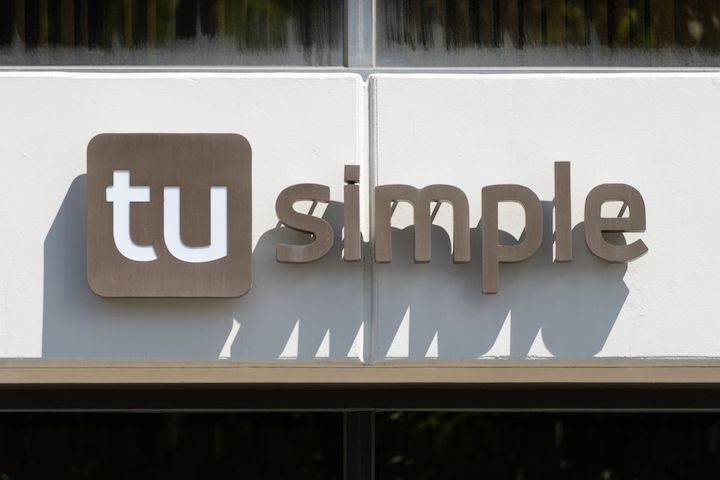Trucking startup TuSimple Holdings Inc. reached an agreement with U.S. authorities to resolve security concerns around its self-driving truck operations and the company’s ties with China.
The agreement includes giving some oversight to the U.S. government related to the technology behind TuSimple’s self-driving truck operations, the company announced on Tuesday. Two board members will also step down after their terms end later this year.
The startup will name a new security officer and security director, the latter of whom will establish a “government security committee” that must meet periodically and report to the Committee on Foreign Investment in the United States, which is part of the Treasury Department. With the agreement, TuSimple said the U.S. government determined that “there are no unresolved national security concerns” at the startup.

‘Successful Outcome’
“It’s a successful outcome to the investigation in that, operationally, we can continue to develop the technology internationally,” Mullen said. “We fully understand the sensitivity of artificial intelligence and how it relates to the geopolitical atmosphere and we will do everything we need to do to be in compliance” with the agreement.
TuSimple was already on the government’s radar when Mullen joined the startup in October 2020—well before it raised $1.35 billion in an April 2021 public offering—but he said the dialog at the time was “very broad.” The committee eventually opened a formal probe a few months after the IPO, which focused on the startup’s ties to China.
The self-driving trucking company has headquarters in San Diego, California, but maintains significant operations in China. It was funded in large part by an affiliate of Sina Corp., the company that runs China’s largest microblogging platform, Weibo Corp.
The two board members that will depart are also connected to Sina: Charles Chao and Bonnie Yi Zhang, both of whom have held top leadership roles at the Chinese technology company and remain involved with it.
TuSimple said in the filing that the Sina affiliate, Sun Dream Inc., has agreed not to name any new directors in their place. Mullen said that Sina also agreed not to increase its stake in the company, but it won’t be forced to divest its current stake.
Mullen said TuSimple’s U.S. division wasn’t sharing source code or algorithms for its trucking technology with the China team. The China operations are more focused on automating trucking at ports, while in the U.S., the focus is highway trucking.
TuSimple has partnerships with Navistar International Corp. and UPS, both of which are also shareholders. It recently signed an agreement to move freight for Union Pacific Corp. The company said in December that it completed the “world’s first fully autonomous semi-truck run on open public roads without a human in the vehicle and without human intervention”—a drive that spanned about 80 miles through Arizona.
Still, Mullen said the Committee on Foreign Investment had some concerns about technology developed in the U.S. being used by the company’s China team. He declined to give details about specifics of the probe, but said the government tends to want “U.S.-driven development to stay in the U.S.”





